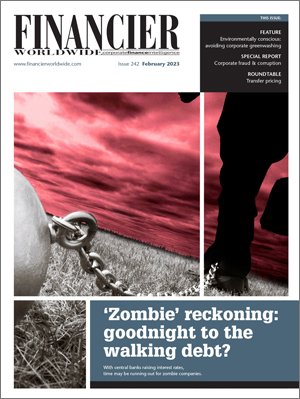Enhanced partnership: OFSI and OFAC in sanctions team up
February 2023 | FEATURE | GLOBAL TRADE
Financier Worldwide Magazine
The UK and US have a long and special relationship based on shared ideals, free speech and open markets – an alliance recently tasked with negotiating a rapidly evolving sanctions landscape.
On 13 October 2022, two of the world’s leading financial sanctions implementation authorities – the UK’s Office of Financial Sanctions Implementation (OFSI) and the US’ Office of Foreign Assets Control (OFAC) – announced details of the conclusion of a ‘multi-day technical exchange’ and an enhanced partnership.
In a joint statement setting out the reasons for the team up, Andrea Gacki, director of OFAC, and Giles Thomson, director of OFSI, first noted that they had much in common and therefore possessed significant ground for advancing their collaboration to a new level.
Indeed, the two authorities have similar corresponding functions and tools, such as the ability to issue general licences and civil monetary penalties with comparable legal thresholds.
“As such, we have decided to deepen OFSI-OFAC cooperation further, to enhance both our own capabilities and the support we provide to those at the forefront of effective sanctions implementation,” explained Ms Gacki and Mr Thomson. “Doing so will further build on the aims of the US Department of the Treasury’s 2021 Sanctions Review, and support OFSI’s move to a larger and more proactive organisation.”
Thus, over the coming months, OFAC and OFSI officials working on implementation and enforcement will be further exchanging best practices and strengthening working relationships at all levels. Opportunities will be identified to pool expertise, think creatively about challenges and explore opportunities to align how sanctions are implemented, as well as assisting stakeholders either through joint products or by providing guidance resulting from collaboration behind the scenes.
“With the growing scale of sanctions making compliance much more difficult, the OFSI-OFAC enhanced partnership is particularly good news for multinational companies that must navigate multiple and sometimes competing sanctions regimes.”
Moreover, the statement solidifies the recent unprecedented levels of coordination between OFAC and OFSI seen in 2022, particularly in the wake of the Russian invasion of Ukraine.
“The enhanced partnership is likely to achieve greater outcomes and alignment on overlapping regimes,” says Charmian Simmons, financial crime and compliance expert at SymphonyAI NetReveal. “We can see this with a number of activities already underway, where both have ongoing interest in specially designation nationals (SDNs), more collaborative enforcement action and similar measures to cover the prosecution of entities who try to evade know your customer (KYC) and anti-money laundering (AML) processes.”
Transparency, foreign policy and national security
With the growing scale of sanctions making compliance much more difficult, the OFSI-OFAC enhanced partnership is particularly good news for multinational companies that must navigate multiple and sometimes competing sanctions regimes.
“OFAC and OFSI will coordinate on developing and implementing new sanctions programmes,” foresees Mike Casey, a partner at Wilson Sonsini. “In theory, a close alignment between the US and the UK on new sanctions will make compliance easier for parties operating in both jurisdictions.”
Certainly, this is the overriding aim of the OFSI-OFAC joint statement, with its strong focus on three key areas: transparency, foreign policy and national security.
“The US, for example, has a newfound interest in multilateral efforts to restrict the flow of goods, services and finances to embargoed countries and regions, in support of designated entities and individuals,” adds Ms Simmons. “In the UK, the introduction of the Economic Crime Act 2022 gave OFSI powers to impose civil monetary penalties for breaches of UK sanctions measures on a strict liability basis. This partnership will allow for a greater focus on sanctions and cooperation for both.”
Ironing out differences
Despite the unprecedented cooperation, it should be noted that significant differences remain between the countries’ respective sanctions programmes, with Russian sanctions in particular containing many discrepancies – a misalignment that the new partnership will endeavour to iron out.
“Collaborative partnerships such as this are important steps in advancing how sanctions and other economic crimes are regulated and enforced,” says Ms Simmons. “While the volume of sanctions issuance has slowed, the effects remain global and will be around for years to come. Strides made here via active cooperation, overlapping regimes and unified enforcement will advance how financial and economic sanctions affect the world.
“I imagine the coming months may focus efforts on designing, communicating and implementing new sanctions in close coordination with each other and further advancing overlapping regimes – all while broadening the cooperation with other key allies and partners to maximise benefits and minimise unintended consequences” she adds.
In the view of Mr Casey, in the near term, OFAC and OFSI will prioritise working together closely on sanctions enforcement matters, including sharing information related to potential sanctions violations. “Given the substantive overlap, many parties that violate OFAC’s sanctions are also likely to violate OFSI’s, and vice versa,” he concludes. “Certainly, enhanced cooperation between OFAC and OFSI will result in more multijurisdictional sanctions investigations.”
© Financier Worldwide
BY
Fraser Tennant


